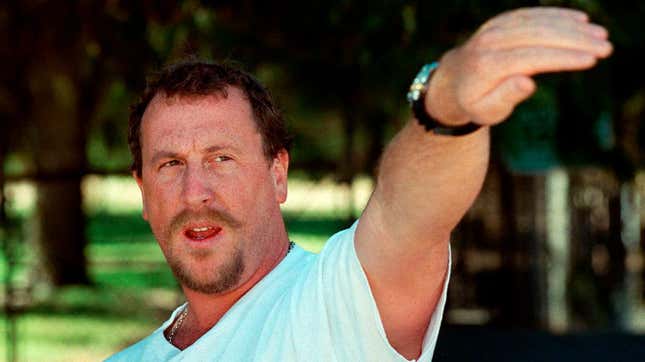
In 1991, a man with a video camera sparked a greater movement of civilians recording police encounters with Black citizens, igniting a revolution at the feet of America’s law enforcement.
George Holliday had just gotten into bed when he heard the wailing police sirens on the night of March 3, 1991. He got to his balcony just in time to record the now-infamous video of Rodney King, a Black motorist being beaten and tased by four police officers, on his Sony Handycam.
On Sunday, Holliday died of COVID-19 complications, according to the Los Angeles Times. Holliday, who spent his days as a plumber, was 61 years old. Robert Wollenweber, a fellow plumber and longtime friend, confirmed his death on Monday. Holliday had been in a Simi Valley hospital since mid-August.
From LA Times:
Holliday said he called the LAPD to ask what was going on and to tell them he’d videotaped the beating. But he said the dispatcher hung up on him. He tried again the next morning and then finally called KTLA-TV Channel 5 instead. The next day, the police came to the KTLA’s studio and confiscated the tape. But by then, copies of the video were multiplying rapidly, an early-day viral sensation.
When the four officers were tried for assault and use of excessive force in 1992, Holliday’s video was the prosecution’s most damning piece of evidence. After seven days of deliberations, the largely white jury returned not-guilty verdicts.
The city, indeed the nation, was stunned.
Following the officers’ acquittal in 1992, five days of violent protests erupted around the city.
More from the Times on the national impact of Holliday’s video:
By every possible measurement, Holliday’s video ignited a revolution. It helped usher in an era when police behavior and public accountability were shaped and influenced by even the most casual smartphone users, who could rocket disturbing videos around the globe on Twitter, Instagram and other social media platforms.
Police departments also embraced — some slowly, some with enthusiasm — body cameras that would record patrol officers’ interactions with everyone, from dangerous felons to routine traffic citations. The devices, meant to ensure that officers were meeting department standards, at times also helped police disprove false claims.
“The Rodney King video was the Jackie Robinson of police videos,” the Rev. Al Sharpton said.
The Times reports that Holliday, who was raised in Argentina, experienced reporters swarming outside of his Lakeview Terrace apartment and feared retaliation from the police. He received death threats in the mail and a note on the windshield of his car that read: “Be careful when you start your car in the morning.”
He was married twice, but both resulted in divorce following the chaos, the Times notes.
According to the Associated Press, he never got compensation for the nine-minute-long grainy and out-of-focus video that gave a voice to a heavily policed community in South L.A. Last July, he put his camcorder up for auction. The bidding started at $225,000, but it is unclear what it sold for or if it was even sold.
AP reports that in 2017, Holliday said he was working on a documentary about his role in the Rodney King case, but there aren’t any reports of it being completed. According to Wollenweber, Holliday was not vaccinated and was on a ventilator in his final days after contracting pneumonia.



